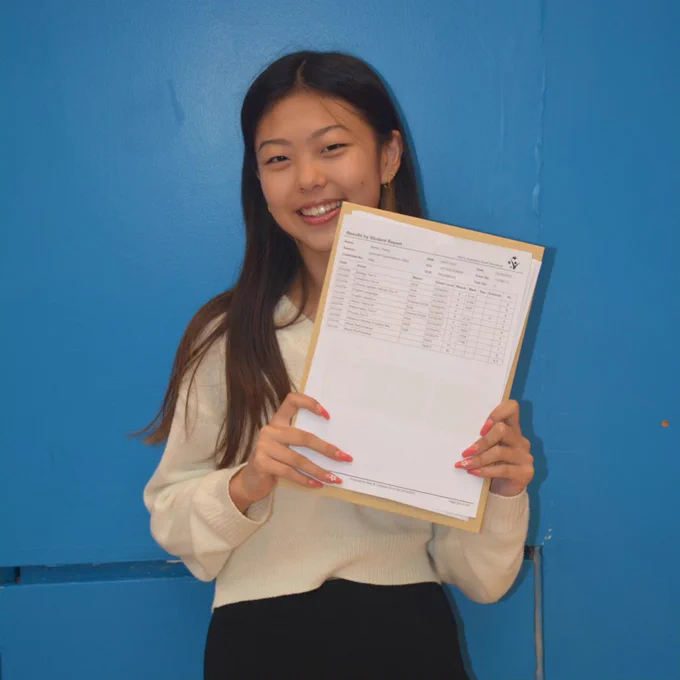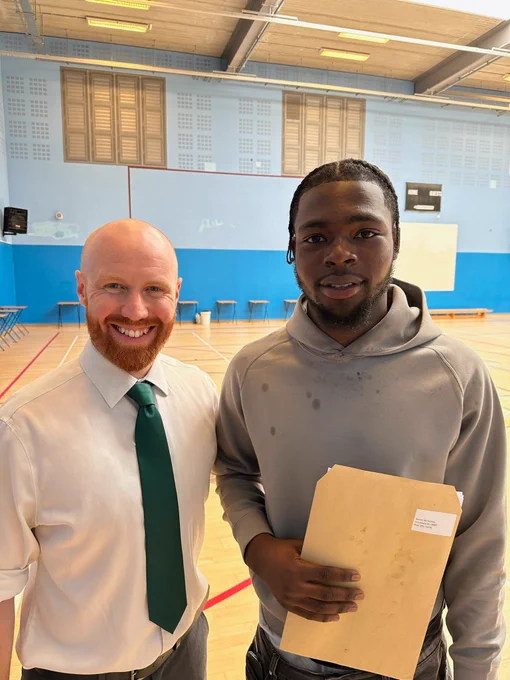Literacy
Literacy at Harris Academy South Norwood
At Harris Academy South Norwood (HASN), we place literacy at the very heart of everything we do. We are committed to unlocking the curriculum and creating subject scholars who can read and comprehend challenging texts for both information and pleasure, write with fluency, accuracy, and enthusiasm, and speak and listen with confidence.
We empower every teacher with the skills and knowledge to embed disciplinary language purposefully and effectively, enabling students to sequence, develop, and articulate their thoughts in every subject. Through universal provision and targeted literacy interventions, we ensure that all students are equipped to succeed both within the academy and beyond.
We believe that promoting literacy is a collective responsibility across the academy—not solely that of the English department. We warmly invite parents and carers to partner with us in fostering a love of literacy at home.
Reading and literacy skills are the gateway to lifelong learning and personal growth. They open doors to new opportunities, helping students access every aspect of the curriculum while enhancing their oracy, communication, and problem-solving skills.
Our Four Literacy Pledges
At HASN, we have developed four core literacy pledges to ensure that every student has the skills and confidence to succeed. These pledges align with Ofsted’s focus on literacy as the foundation for academic success and personal development:
- All Students Will Be Readers
We pledge to develop a culture of reading for pleasure and purpose. Our reading strategies—such as Double Reading, Layered Reading, and Zoning—ensure that all students engage with challenging texts in every subject. Students also read aloud regularly, enhancing their fluency, confidence, and comprehension.- In Tutor Time: Weekly "First Chapter Thursday" sessions introduce students to new stories or non-fiction pieces, encouraging a love of reading.
- Beyond the Classroom: All Key Stage 3 (KS3) students have weekly library visits and access to Bedrock Vocabulary, supporting vocabulary enrichment and reading fluency.
- All Students Will Be Writers
Writing is at the core of every lesson. Students write independently for 15 minutes in every single lesson (or 30 minutes in double lessons) to develop their fluency and confidence.
Teachers model writing using disciplinary approaches (e.g., what effective writing looks like in science or history), and explicit instruction is provided on sentence construction, paragraph organisation, and spelling (using techniques such as etymology). Frequent opportunities for live marking allow students to learn from and correct their mistakes in real-time. - All Students Will Use Key Vocabulary
Vocabulary unlocks meaning and empowers students to articulate their understanding with precision. Every lesson incorporates the explicit teaching of Tier 2 words (high-utility academic words) and Tier 3 words (subject-specific terms). Our "Say It Better" strategy encourages students to refine and expand their vocabulary when speaking and writing.- Parents can support their child by referring to our Key Vocabulary Lists, which provide the 10 most important Tier 3 words for each subject.
- All Students Will Have the Confidence to Speak and Listen
Oracy skills are embedded across the curriculum through structured talk activities, such as "Turn and Talk" discussions, debates, and presentations. These activities build students' confidence in articulating their ideas clearly and respectfully. Through our "Say It Better" strategy, students are guided to use more advanced vocabulary and improve their spoken responses.
You can read more about our vision in our Literacy Policy here
Literacy in the Classroom
We are proud of our consistent approach to embedding literacy across the curriculum. Every teacher is a teacher of literacy, ensuring that all students:
- Read challenging texts regularly, both for information and enjoyment.
- Write independently and frequently, with a focus on clarity, fluency, and accuracy.
- Use and understand key vocabulary in every lesson.
- Participate in structured talk activities to develop their oracy skills.
Key classroom strategies include:
- Modelling high-quality writing through a disciplinary lens.
- Explicitly teaching spelling, grammar, and punctuation.
- Frequent live marking to provide immediate feedback on writing.
Literacy Beyond the Classroom
- KS3 Reading Journals: Every student is encouraged to read for at least 15–20 minutes, five times a week, and to complete tasks in their reading journal. These journals allow students to reflect on their reading and develop personal responses to the themes, characters, and ideas they encounter.
- Recommended Reads: We inspire students to explore new stories and ideas through carefully curated reading lists for KS3 and KS4, featuring a wide range of genres, themes, and voices.
Literacy in Tutor Time
Tutor time is a key part of our literacy journey, where students develop core skills through:
- Weekly spelling tests for Years 7–10, focusing on morphemes, spelling rules, or subject vocabulary.
- "First Chapter Thursday," where students experience the opening of a new book or piece of non-fiction, engaging with reciprocal reading strategies.
How We Deliver
- High-Quality Reading: Our reading strategies ensure students access a range of challenging texts in every subject, building comprehension and critical thinking skills.
- Fluent Writing: We provide structured opportunities for extended writing, with explicit teaching of writing techniques and real-time feedback.
- Vocabulary Development: We prioritise teaching academic and disciplinary vocabulary to unlock meaning and improve academic outcomes.
- Speaking and Listening Skills: Through structured talks, debates, and presentations, we give students the confidence to articulate their thoughts effectively.
Catch Up Reading
We help all students who need extra help catch up quickly. All students will complete NGRT tests in September and June. From this we select some students to complete phonics interventions with our specialists, others complete small group reading with their English teachers using a specifically designed catch-up curriculum based on the Hackney Lit programme, and a final group will read with some of our wonderful sixth formers.
Support Your Child’s Literacy at Home
We encourage parents to play an active role in developing their child’s literacy skills. Here are some ways you can help:
- Encourage your child to read daily and discuss the books they are reading.
- Use our Key Vocabulary Lists to test your child on new words.
- Support your child with their reading journal tasks, using our suggested questions.
Recommended Books
Recommended Books for KS3 | Recommended Books for KS4 |
|
| Rebel Skies by Ann Sei Lin Kensuke's Kingdom by Michael Morpurgo The Hunger Games by Suzanne Collins This Poison Heart by Kalynn Bayron Granted by Rachel Huffmire The Chocolate Box Girls series by Cathy Cassidy The Breakfast Club Adventures by Marcus Rashford The Woods are Always Watching by Stephanie Perkins 21% Monster by P.J. Canning How to Train your Dragon by Cressida Cowell The Selection series by Keira Kass Hetty Feather by Jacqueline Wilson Slated by Terri Terry The School for Good and Evil by Soman Chainani Cinderella is Dead by Kalynn Bayron Queen of the Tiles by Hanna Alkaf The Extinction Trials by S.M. Wilson Girl Online by Zoe Sugg Faking Delinquency by Ashley Winters | Twin Crowns by Katherine Webber and Catherine Doyle Lore by Alexandra Bracken This Place is Still Beautiful by XiXi Tian Daughter of The Moon Goddess by Sue Lynn Tan Breathe and Count Back from Ten by Natalia Sylvester The Unsound Theory by Emilia Zeeland Goddess Crown by Shade Lapite Legendborn by Tracy Deonn Vox by Christina Dalcher Beasts of Prey by Ayana Gray Paper Towns by John Green The Auora Cycle by Amie Kaufman and Jay Kristoff The Robin Hood series by Robert Muchamore A Darker Shade of Magic series by V.E. Schwab Everything, Everything by Nicola Yoon Blackout by D. Clayton, A. Thomas, N. Stone, N. Yoon, A. Woodfolk, T. D. Jackson The Hate U Give by Angie Thomas Arrow to the Moon by Emily X.R. Pan The Magpie Society by Amy McCulloch and Zoe Sugg Six Crimson Cranes by Elizabeth Lim Caraval by Stephanie Garber Spellslinger by Sebastien De Castell |






















